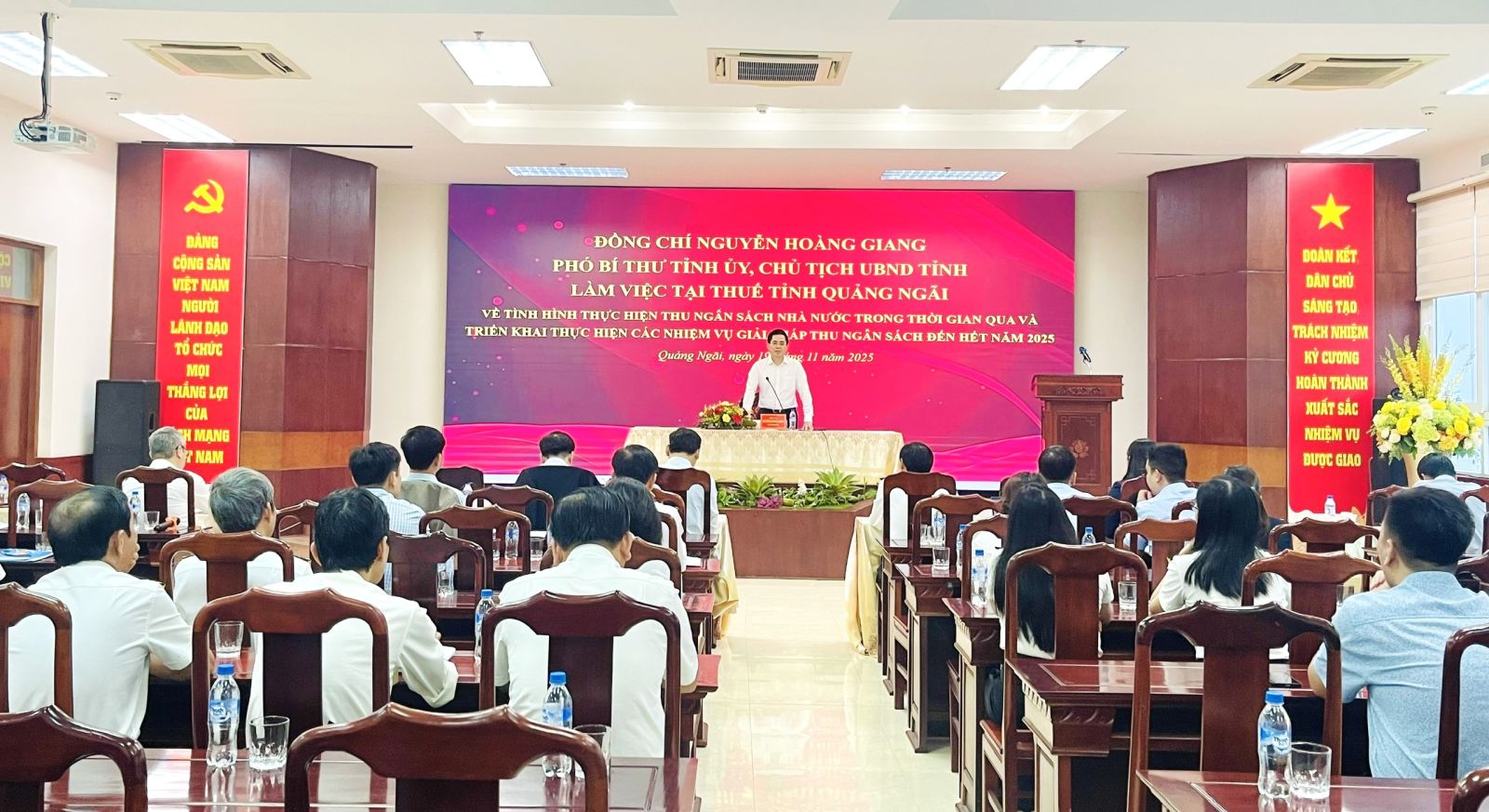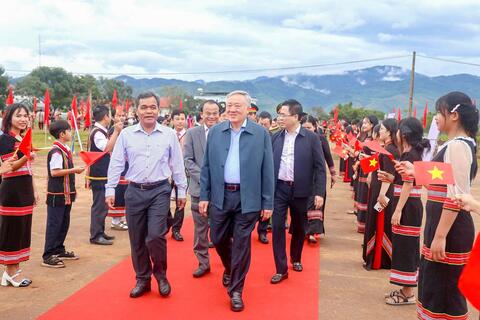
Quảng Ngãi — Chairman of the Provincial People’s Committee Nguyễn Hoàng Giang on Wednesday morning chaired a working session with the provincial Tax Department to review state budget revenue performance and discuss solutions for achieving revenue targets in the remaining months of 2025.
According to the Quảng Ngãi Tax Department, state budget revenue managed by the sector reached VNĐ 17.112 trillion in the first 10 months of 2025, equivalent to 76.7 per cent of the target assigned by the central government, 71.2 per cent of the provincial target, and 109.9 per cent of the same period in 2024.
Revenue sources continued to be affected by tax support policies, resulting in several collections falling short of schedule compared to estimates and year-on-year figures.
Among other revenue categories, 9 out of 17 surpassed assigned estimates.
The Tax Department expects that total revenue for 2025 will reach VNĐ 21.276 trillion, equivalent to 95.3 per cent of the central estimate and 88.5 per cent of the provincial target.
Despite positive results, some revenue sources — such as land use fees, land rents, proceeds from the sale of State-owned houses and environmental protection taxes — remain behind schedule.
The low contribution from the Dung Quất Oil Refinery continues to heavily impact total budget revenue.
The Tax Department proposed that the Provincial People’s Committee direct relevant agencies to help resolve land-related bottlenecks to accelerate the collection of land use fees, land rents and mining rights fees.
It also suggested enhanced communication and guidance to support business households transitioning from fixed tax calculation to the declaration method.
Concluding the meeting, Chairman Giang acknowledged the efforts of the tax sector, departments, units and enterprises despite ongoing challenges.
He emphasised that the revenue task for the remaining months of 2025 is substantial, requiring strong determination, flexibility in management, and innovative approaches to meet assigned targets.
He instructed the tax sector to thoroughly review and analyse each revenue source, identify areas with untapped potential, and propose feasible solutions to maximise revenue.
Priority should be given to strengthening the management of land-related revenue, natural resources, minerals, e-commerce activities and temporary tax collections.
He also requested intensified communication and support for business households shifting to the declaration-based tax method, along with strengthened tax management.
The Chairman underscored the continued role of the provincial Steering Committee on Anti–Revenue Loss to ensure transparent, objective and lawful oversight.
Relevant departments, agencies and localities were urged to focus on effectively implementing revenue tasks for the remaining months of 2025, aiming to achieve the highest possible results.
He also encouraged close coordination with enterprises to remove obstacles, facilitate production and business activities, and contribute to socio-economic development and social welfare.
Local enterprises were called on to maintain production and business operations, adapt flexibly to tax policy changes, and develop practical business plans aligned with market conditions while accompanying the province’s development in the coming period.
M.H




.png)
.png)
.png)


